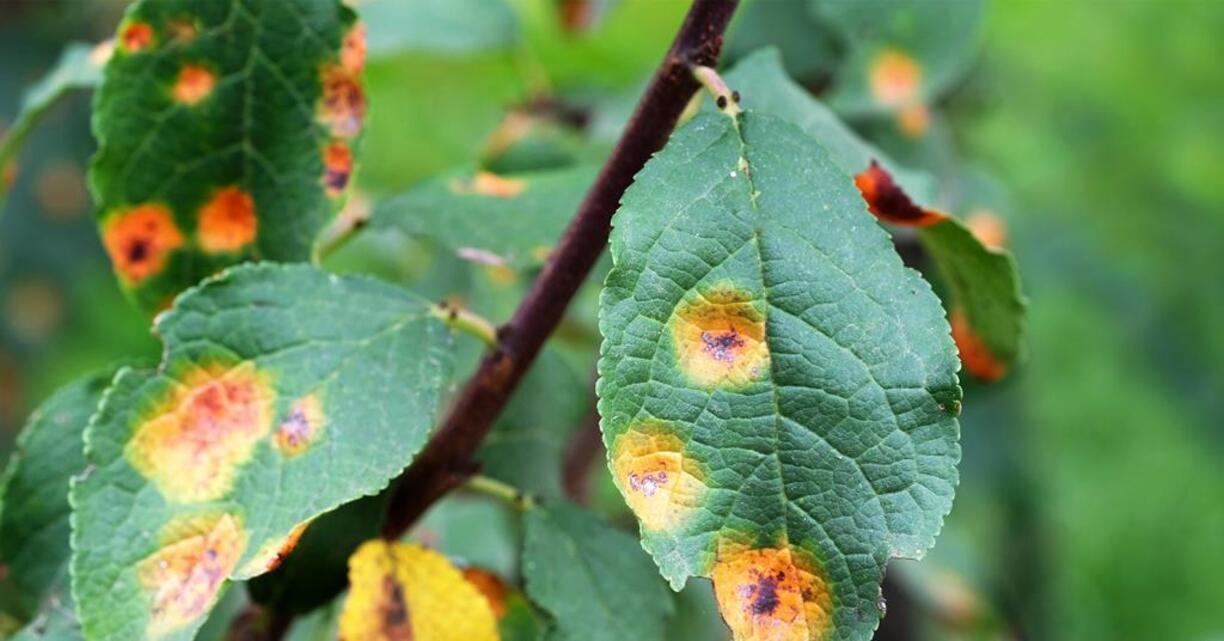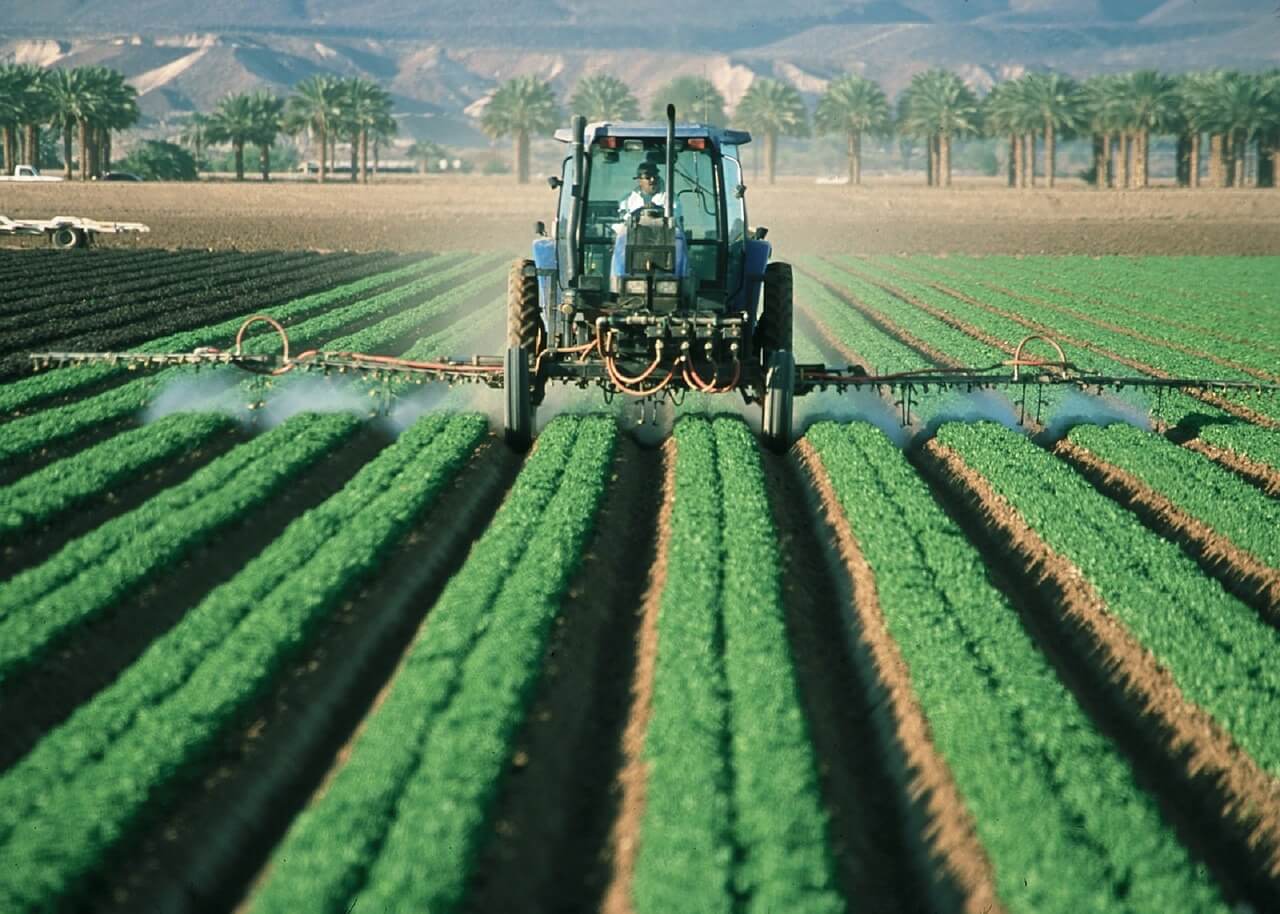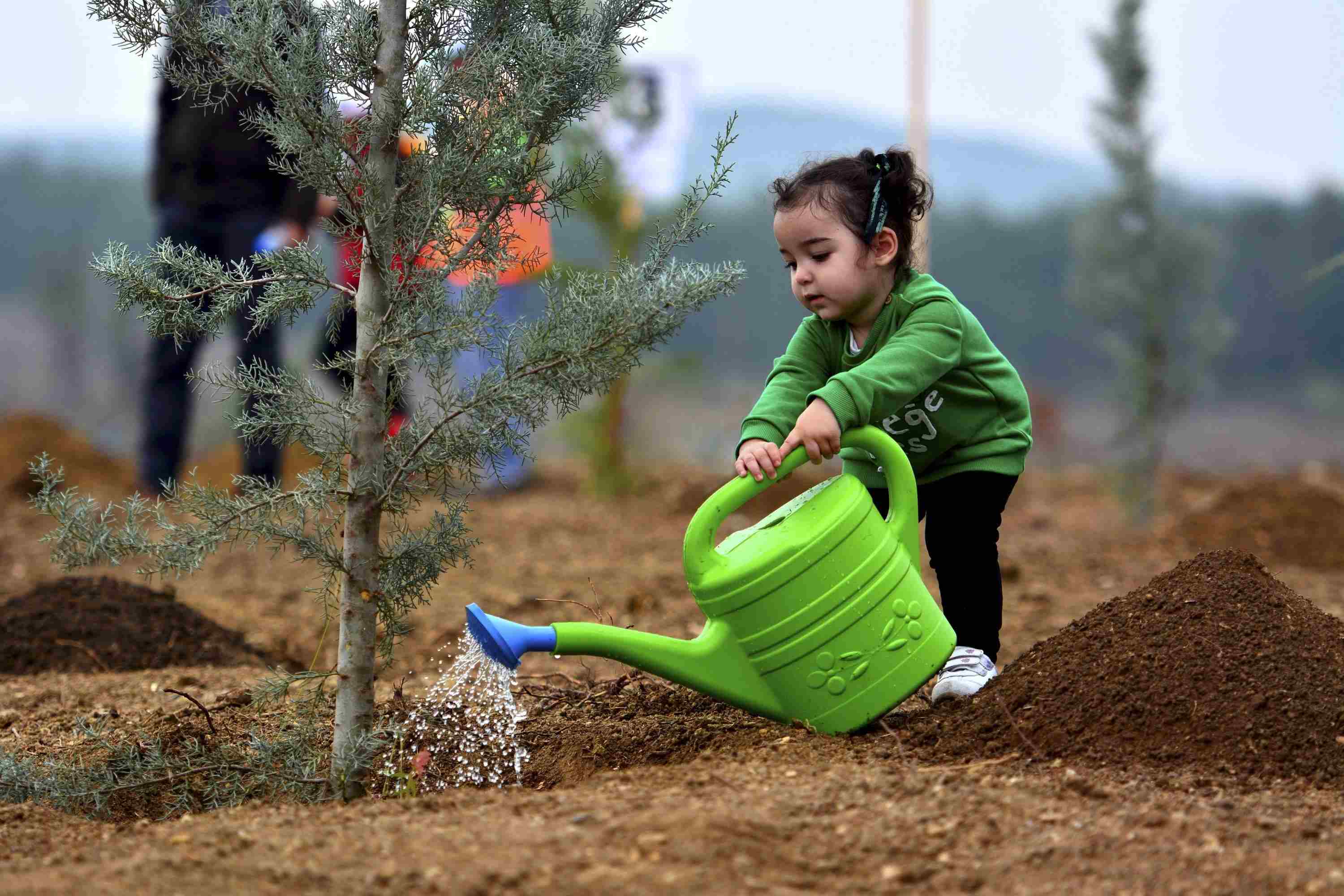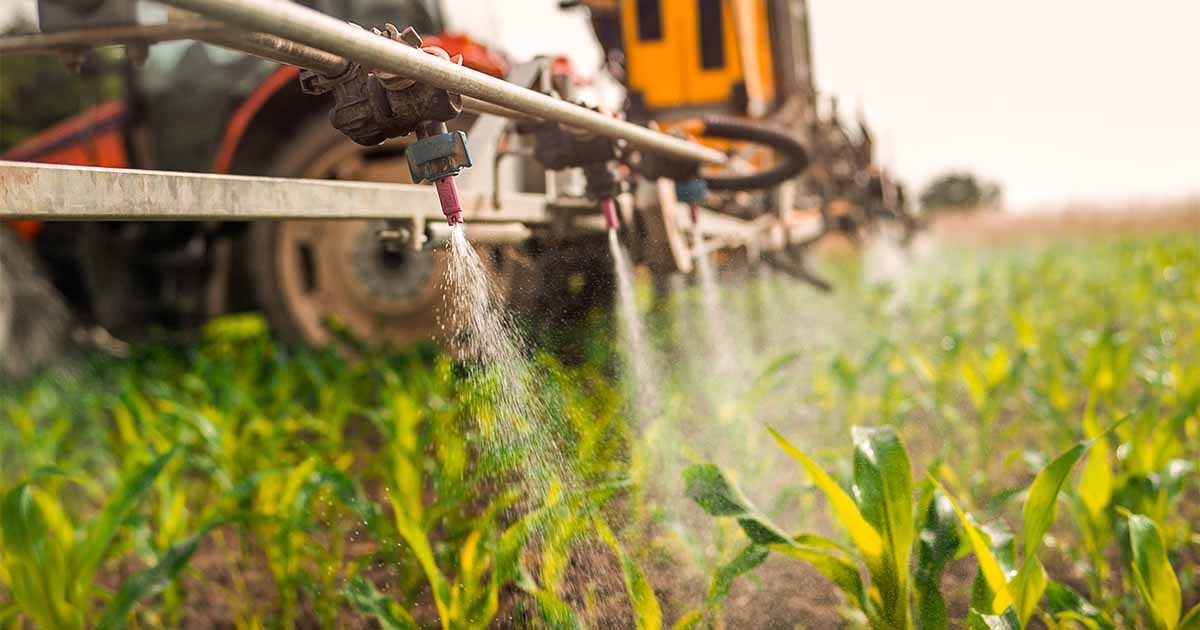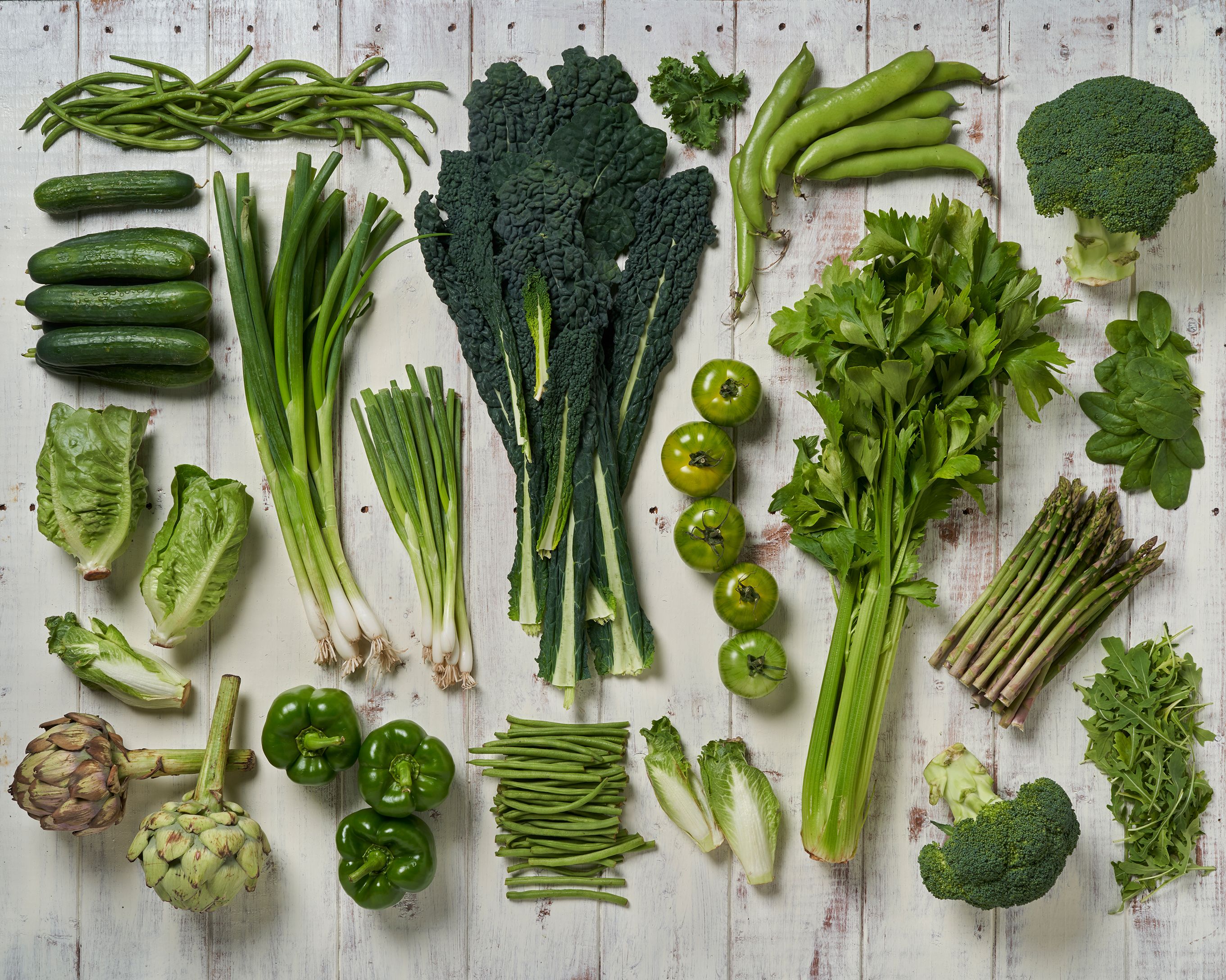Home>Gardening News and Trends>Latest News>Why Are Pesticides Good For The Environment
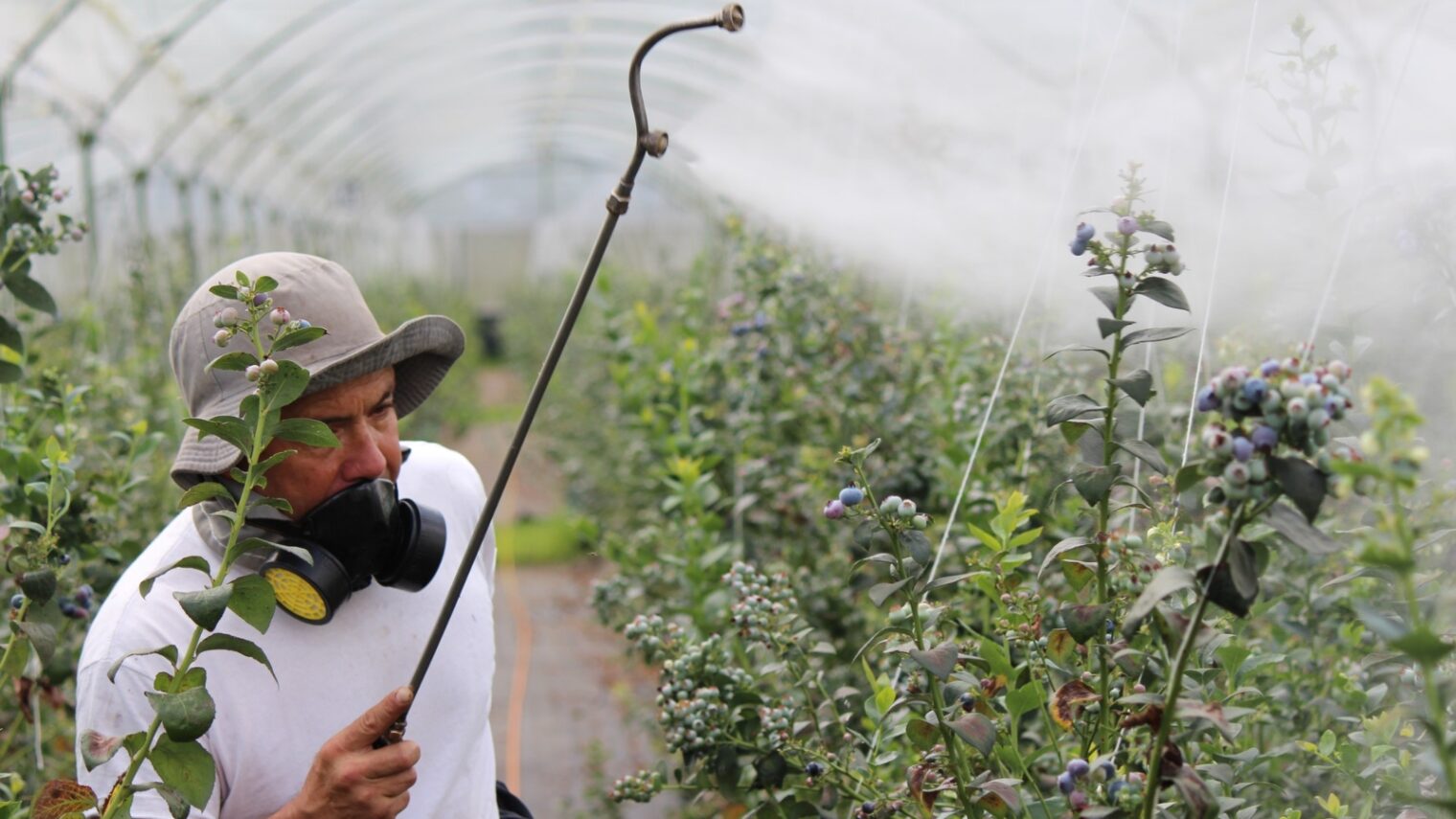

Latest News
Why Are Pesticides Good For The Environment
Modified: January 22, 2024
Discover the latest news on why pesticides are beneficial for the environment. Stay informed on the positive impact of pesticides in protecting crops and maintaining ecological balance.
(Many of the links in this article redirect to a specific reviewed product. Your purchase of these products through affiliate links helps to generate commission for Chicagolandgardening.com, at no extra cost. Learn more)
Table of Contents
- Introduction
- The Role of Pesticides in Agriculture
- Benefits of Pesticides for Crop Production
- Controlling Pests and Reducing Crop Damage
- Minimizing the Spread of Diseases in Plants
- Reducing the Use of Land for Farming
- Advancements in Pesticide Technology
- Ensuring Safety and Environmental Regulations
- Conclusion
Introduction
Pesticides play a crucial role in modern agriculture by helping to protect crops from pests and diseases. These chemical substances are designed to target and eliminate harmful organisms that can damage crops, reduce yields, and threaten food security. While the use of pesticides can sometimes be controversial due to concerns about their potential impact on the environment and human health, they can also provide significant benefits when used responsibly and in accordance with regulatory guidelines.
Over the years, pesticides have become an integral part of agricultural practices, enabling farmers to effectively control pests, prevent crop damage, and increase overall productivity. The development and utilization of pesticides have revolutionized farming methods, allowing for more efficient and sustainable agricultural production.
In this article, we will explore the important role that pesticides play in agriculture and discuss the various benefits they offer for crop production. From controlling pests to minimizing the spread of diseases and reducing the use of land, the use of pesticides has become essential for ensuring an abundant food supply for a growing global population.
However, it is important to note that while pesticides can bring significant advantages, their usage must be carefully managed to mitigate potential risks and ensure the well-being of both humans and the environment. This includes adhering to safety protocols, following prescribed application rates, and staying up to date with the latest advancements in pesticide technology.
Now, let’s delve deeper into why pesticides are considered valuable tools in modern agriculture and explore the benefits they provide for sustainable and efficient crop production.
The Role of Pesticides in Agriculture
Pesticides are essential tools in modern agriculture, serving multiple purposes to ensure the success and productivity of crops. They are designed to control and eliminate unwanted pests, including insects, weeds, and diseases, that can pose significant threats to agricultural production. By targeting and managing these pests, pesticides help farmers protect their crops and maximize yields.
One of the key roles of pesticides is pest management. Various pests, such as insects and weeds, can cause significant damage to crops, leading to yield losses and reduced quality. Pesticides work by disrupting the pests’ life cycles, inhibiting their growth, or directly eliminating them. This control measure prevents pests from damaging crops, allowing plants to grow and develop without competition or interference.
Pesticides also aid in weed control, which is critical for crop success. Weeds compete with crops for nutrients, sunlight, and water, reducing yields and stunting plant growth. Utilizing herbicides, a type of pesticide specifically designed for weed control, farmers can selectively target and eliminate weeds, ensuring that crops have sufficient resources to thrive.
Furthermore, pesticides play a crucial role in disease management. Plant diseases can spread rapidly and cause devastating consequences for agricultural production. Some diseases are caused by pathogens like fungi, bacteria, or viruses, which can be transmitted through various means, including insects. Pesticides can prevent the spread of these diseases by targeting and eliminating the vectors or pathogens responsible, protecting plants from infections and reducing the risk of significant crop losses.
In addition to pest and disease control, pesticides contribute to the overall health and vigor of plants. They can help improve the quality of crops by enhancing their appearance, nutritional content, and shelf-life. By combating stress factors such as pests and diseases, pesticides enable plants to allocate resources more effectively towards growth and development, resulting in stronger, healthier crops.
Overall, the role of pesticides in agriculture is crucial for sustaining and improving crop production. By effectively managing pests, controlling weeds, reducing disease transmission, and enhancing plant health, pesticides help farmers maximize yields, ensure food security, and provide high-quality produce to meet the demands of a growing population.
Benefits of Pesticides for Crop Production
When used responsibly and in accordance with safety guidelines, pesticides offer a range of benefits that contribute to sustainable and efficient crop production. These advantages are crucial for meeting the global demand for food and ensuring the economic viability of agriculture. Let’s explore some of the key benefits of pesticides:
- Pest control: Pesticides are highly effective in controlling and managing pests that can cause significant damage to crops. By targeting harmful insects, weeds, and diseases, pesticides help farmers protect their crops from potential yield losses and ensure an abundant harvest.
- Increased yields: With effective pest management, crops can grow and develop without competition from pests. This results in improved crop yields and maximized output, enabling farmers to meet the demands of a growing population.
- Reduced economic losses: Pests and diseases can lead to significant economic losses for farmers. By preventing damage from these threats, pesticides help minimize financial burdens and ensure the profitability and sustainability of agricultural operations.
- Enhanced food quality: Pesticides play a crucial role in maintaining the quality and safety of food. By preventing infestations and diseases, pesticides help preserve the nutritional value, appearance, and taste of crops, ensuring that consumers have access to high-quality produce.
- Improved storage and transport: Pesticides contribute to the longevity and preservation of harvested crops. By protecting produce from pests, post-harvest losses can be significantly reduced, allowing for longer storage periods and safer transportation to markets.
- Conservation of resources: By effectively managing pests, pesticides help farmers conserve resources such as water, fertilizers, and energy. With reduced competition from pests, crops can more efficiently utilize available resources, leading to more sustainable agricultural practices.
- Support for sustainable agriculture: Pesticides, when used responsibly, can be valuable tools for implementing integrated pest management (IPM) strategies. IPM combines various pest control methods to minimize pesticide usage while maximizing effectiveness. This approach ensures the ecological balance, reduces the development of pesticide resistance, and promotes long-term sustainability in agriculture.
These benefits highlight the significant role that pesticides play in ensuring productive, profitable, and sustainable crop production. However, it is important to note that the usage of pesticides should always be accompanied by responsible application practices, proper safety precautions, and adherence to legal and environmental regulations.
Controlling Pests and Reducing Crop Damage
Pests represent a constant threat to crop production, causing significant damage to plants and decreasing yields. Pesticides play a vital role in controlling pests and minimizing crop damage, ensuring the success and profitability of agricultural operations.
Pesticides are specifically designed to target and eliminate pests that attack crops. Insects, such as aphids, caterpillars, and beetles, can devour leaves, stems, and fruits, leading to severe yield losses. Weeds, on the other hand, compete with crops for essential resources like water, nutrients, and sunlight, hampering their growth and impacting yields. By applying pesticides, farmers can effectively control these pests and minimize their impact on crop health and productivity.
One of the advantages of pesticides is their ability to provide swift and targeted control. When applied correctly, pesticides can quickly eradicate pests, preventing further damage to crops. This targeted approach helps farmers prevent widespread infestations and limit the economic losses associated with crop damage.
In addition to immediate control, pesticides can also offer prolonged protection. Some pesticides have residual activity, meaning they remain active on the plant or in the soil for an extended period. This helps in preventing reinfestation and subsequent crop damage, especially in cases where pests have multiple generations within a growing season.
Pesticides also contribute to integrated pest management (IPM) strategies, which aim to minimize reliance on pesticides by incorporating other control methods such as biological control, cultural practices, and monitoring. By using pesticides as part of a comprehensive IPM approach, farmers can achieve more effective pest control and reduce the need for extensive pesticide applications.
By controlling pests, pesticides play a vital role in minimizing crop damage and protecting farmers’ investments. They help maintain crop health, promote uniform growth, and prevent yield losses caused by pest infestations. Ultimately, this leads to increased harvests, improved crop quality, and higher profitability for farmers.
However, it is important to note that pesticide use should always be carried out responsibly, following labeled instructions and using the recommended application rates. Farmers should also consider potential impacts on non-target organisms, biodiversity, and the environment when using pesticides to ensure sustainable pest control practices.
Minimizing the Spread of Diseases in Plants
Diseases in plants can spread quickly, causing devastating consequences for crop production. Pesticides play a crucial role in minimizing the spread of diseases and protecting plants from infections, ensuring healthy and productive crops.
Plant diseases are caused by various pathogens, including bacteria, fungi, viruses, and nematodes. These pathogens can be transmitted through different means, such as wind, water, insects, or contaminated soil. Once a plant is infected, the disease can rapidly spread to neighboring plants, leading to widespread outbreaks and significant crop losses.
Pesticides, specifically designed for disease control, can effectively manage these pathogens. They work by targeting the vectors or pathogens themselves, inhibiting their growth, or preventing their transmission. By applying the appropriate pesticides, farmers can significantly reduce the risk of disease outbreaks and limit their impact on crops.
Preventive measures are also an essential component of disease management, and pesticides play a crucial role in this aspect. Farmers can use pesticides as part of a preventative spray program, applying them during critical stages of plant development or when disease pressures are high. This proactive approach helps create a protective barrier, reducing the chances of infection and ensuring the health of plants.
Furthermore, pesticides can aid in the control of post-harvest diseases. After crops are harvested, they can still be susceptible to various pathogens that can cause spoilage during storage and transportation. By utilizing appropriate pesticides, farmers can protect harvested crops, prolong their shelf-life, and maintain their quality for longer periods.
Pesticides also contribute to the overall health and vigor of plants, making them more resistant to diseases. When pests, such as insects or mites, attack plants, they can create wounds and openings that make it easier for diseases to infect the plant. By managing pests effectively with pesticides, farmers can reduce the entry points for pathogens and lower the risk of diseases taking hold.
By minimizing the spread of diseases, pesticides help maintain the health and productivity of plants. This results in higher yields, improved crop quality, and reduced losses due to diseases. Ultimately, farmers can secure their investment and contribute to a more sustainable and reliable food supply.
However, it is important to note that responsible use of pesticides is crucial to minimize potential negative impacts. Farmers should carefully follow label instructions, use recommended rates, and consider the development of pesticide resistance to ensure the long-term effectiveness of disease control strategies.
Reducing the Use of Land for Farming
The growing global population and the increasing demand for food put pressure on agricultural land resources. Pesticides play a significant role in reducing the need for extensive land use in farming, allowing for more efficient and sustainable food production.
By effectively controlling pests and diseases, pesticides help protect crops from damage and ensure higher yields on existing farmland. This increased productivity allows farmers to produce more food on limited land, reducing the need to clear additional areas for agriculture.
Furthermore, pesticides help optimize land utilization by preventing yield losses. Pests and diseases can cause significant crop damage and result in lower yields. Without effective pest control, farmers would need to allocate more land to compensate for the yield losses, which would contribute to deforestation and environmental degradation. By reducing crop losses through the use of pesticides, farmers can maximize the productivity of their existing land without the need for expansion.
In addition, the use of pesticides aids intensification of agricultural practices. Rather than relying on extensive farming methods, which require vast amounts of land, farmers can enhance their productivity through intensification. This could involve increased cropping frequency, multiple cropping systems, or the adoption of high-yielding varieties. Pesticides can play a crucial role in supporting these intensive farming practices by managing pests and diseases that could otherwise hinder productivity.
Intensification also enables farmers to meet the growing demand for food without converting wildlands or natural habitats into farmland. By utilizing pesticides to enhance productivity, farmers can contribute to preserving biodiversity and reducing environmental impact.
Additionally, pesticides can aid in the development of precision agriculture techniques. By accurately targeting pests and diseases, farmers can reduce the overall application of pesticides on their fields. This precision reduces the amount of chemicals needed and minimizes the potential for environmental contamination, thereby ensuring more sustainable land use practices.
Overall, by helping to control pests, reduce yield losses, and optimize land utilization, pesticides play a crucial role in reducing the need for extensive land use in agriculture. This contributes to the conservation of natural habitats, preserves biodiversity, and promotes more sustainable and efficient food production systems.
However, it is important to note that while pesticides offer benefits in reducing land use, it is essential to use them responsibly and in accordance with environmental regulations to minimize any potential negative impacts on ecosystems and human health.
Advancements in Pesticide Technology
Advancements in pesticide technology have significantly improved the effectiveness, safety, and environmental impact of these essential agricultural tools. These innovations have allowed farmers to better control pests and diseases while minimizing the potential risks associated with pesticide use.
One of the notable advancements is the development of more selective pesticides. Traditional broad-spectrum pesticides can have unintended effects on beneficial insects, pollinators, and other non-target organisms. Selective pesticides, on the other hand, are designed to target specific pests while minimizing harm to beneficial insects. This targeted approach reduces the impact on overall ecosystems and helps preserve biodiversity.
Another significant advancement is the use of lower application rates. With improved formulations and delivery systems, farmers can achieve effective pest control with fewer chemicals. This reduces the overall amount of pesticides used on crops and decreases the potential for environmental contamination.
Formulation innovations have also led to the development of safer and more convenient pesticide products. For example, encapsulated formulations can protect the active ingredient, preventing it from degrading or being released too quickly. This ensures a more controlled and sustained release of the pesticide, improving its efficiency and reducing the need for frequent reapplications.
Additionally, advancements in pesticide application technology have improved accuracy and efficiency. Precision agriculture techniques, such as the use of GPS-guided equipment and variable rate technology, enable farmers to apply pesticides with greater precision. This minimizes off-target drift and ensures that pesticides are applied only where they are needed, reducing waste and environmental impact.
Furthermore, biotechnology has played a role in pesticide innovation. Genetic engineering has allowed for the development of genetically modified crops (GMOs) that are resistant to pests and diseases. This trait reduces the need for pesticide applications, as these crops can naturally protect themselves against specific pests or pathogens. The use of GMOs has the potential to reduce the overall environmental impact of pesticide usage while maintaining crop productivity.
Advancements in pesticide technology also include improved safety features. Pesticide companies invest in extensive research and development to ensure the safety and efficacy of their products. This includes rigorous testing, evaluating their impact on human health and the environment. Regulatory agencies play a critical role in reviewing and approving new pesticide products, ensuring that they meet stringent safety standards and pose minimal risks when used as directed.
These advancements collectively contribute to a more sustainable and responsible use of pesticides in agriculture. However, it is important for farmers to stay informed about the latest developments, follow labeled instructions, and receive proper training to ensure the effective and safe use of these products.
Ensuring Safety and Environmental Regulations
The use of pesticides in agriculture is subject to strict safety and environmental regulations to protect human health and the environment. These regulations are in place to ensure the responsible use of pesticides and minimize any potential adverse effects.
One of the primary goals of safety regulations is to protect those who handle and apply pesticides. Applicators and farmers must follow safety protocols and wear appropriate protective equipment to minimize their exposure to the chemicals. These safety measures include using personal protective equipment, following safe handling procedures, and adhering to recommended application rates and timings.
Environmental regulations are designed to safeguard ecosystems, wildlife, and water resources from the potential adverse impacts of pesticides. Pesticides are extensively tested and evaluated for their environmental toxicity and potential to harm non-target organisms, such as beneficial insects, birds, and aquatic life. Regulatory agencies set strict limits on the amount of residues allowed in food products to protect consumers’ health.
Furthermore, regulations often require farmers to keep records of pesticide applications, including the type and amount of pesticide used, the target pest, and the application method. This documentation helps ensure accountability and aids in monitoring the effects of pesticide use on the environment.
In many countries, pesticide review and approval processes involve rigorous scientific assessments by government agencies. Regulatory authorities evaluate the potential risks associated with pesticide use and consider factors such as human health, environmental impacts, and efficacy. Pesticides must meet stringent criteria before being authorized for use in agricultural settings.
Education and training programs are also an essential part of ensuring the responsible use of pesticides. Farmers and applicators are encouraged to participate in pesticide safety training courses to stay informed about the latest application techniques, safety precautions, and regulatory requirements. This education promotes best practices and helps minimize risks associated with pesticide use.
Over time, safety and environmental regulations have become more stringent and comprehensive. This has led to the development and adoption of safer pesticide alternatives, the reduction of highly toxic pesticides, and increased emphasis on integrated pest management (IPM) practices.
Every farmer and pesticide applicator has a responsibility to understand and adhere to these regulations. By doing so, they can contribute to safe and sustainable agricultural practices, protect the environment, and ensure the safety of consumers and workers.
Conclusion
Pesticides play a crucial role in modern agriculture, providing valuable tools for controlling pests, reducing crop damage, and ensuring the productivity and profitability of farming operations. They help protect crops from harmful organisms and minimize the spread of diseases, ultimately contributing to global food security.
Throughout this article, we have explored the various benefits of pesticides in agriculture. They help control pests, increase yields, and reduce economic losses caused by crop damage. Pesticides also play a vital role in maintaining the quality and safety of food, preserving harvested crops during storage and transportation, and conserving resources such as water and energy.
Advancements in pesticide technology have further improved the effectiveness, safety, and environmental impact of these essential agricultural tools. Selective pesticides, lower application rates, improved formulations, and precision application techniques have all contributed to more efficient and sustainable pest management.
However, it is important to note that the responsible use of pesticides is paramount. Adhering to safety and environmental regulations, following labeled instructions, and staying informed about the latest advancements and best practices are essential. This ensures the proper management of pests while minimizing risks to human health and the environment.
By recognizing the benefits and challenges associated with pesticide use, farmers and applicators can make informed decisions and contribute to a more sustainable and responsible agricultural industry. Integrated pest management (IPM) practices that combine various control methods, including pesticides, can help farmers optimize productivity while minimizing reliance on chemicals.
Ultimately, the responsible use of pesticides, along with advancements in technology and adherence to safety and environmental regulations, allows for the sustainable and efficient production of crops. By balancing the benefits of pesticides with the need for environmental stewardship, we can continue to ensure an abundant and safe food supply for present and future generations.
